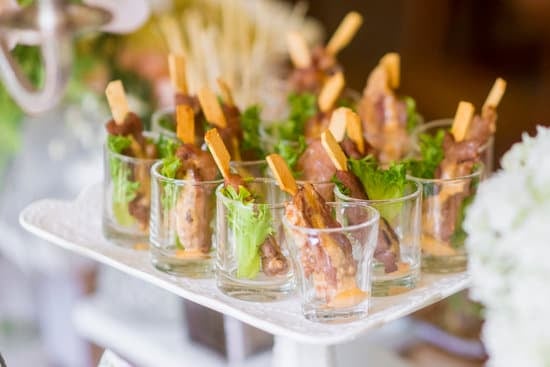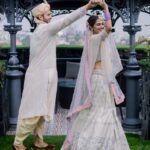Attending an Indian wedding reception is a truly special experience, rich in tradition, culture, and celebration. One of the most important aspects of preparing for this event is choosing the perfect outfit that reflects both respect for the occasion and personal style. Understanding what to wear to an Indian wedding reception is essential in order to honor the significance of this cultural celebration.
Indian wedding receptions hold great significance in the lives of the couple getting married and their families. It is a time for joyous celebration, elaborate ceremonies, and colorful festivities that showcase India’s diverse cultural heritage. As such, dressing appropriately for this event is not only a matter of personal style but also a way of showing respect for the traditions and customs associated with Indian weddings.
The attire worn at Indian wedding receptions reflects centuries-old customs and traditions while also embracing modern fashion trends. From vibrant saris and sherwanis to intricately embroidered lehengas and stylish Indo-western fusion outfits, there are numerous options for guests to choose from. Understanding the significance of traditional Indian attire as well as embracing modern interpretations allows guests to fully immerse themselves in the beauty of an Indian wedding reception.
Traditional Indian Wedding Attire
When attending an Indian wedding reception, it is essential to understand the significance of traditional Indian wedding attire. For women, traditional attire often includes sarees or lehengas, which are vibrant and intricately designed garments.
These outfits are typically made from luxurious fabrics such as silk, chiffon, or brocade and are adorned with stunning embroidery, embellishments, and intricate detailing. The color choices for women’s attire can vary widely but often include bright and bold hues such as red, pink, orange, blue, or green.
Men’s traditional attire for an Indian wedding reception usually consists of a sherwani or a kurta paired with a churidar or dhoti. These outfits are also crafted from rich fabrics and feature ornate embellishments and embroidery. The color choices for men’s attire may include earthy tones like cream, gold, maroon, or navy blue.
It is important to note that traditional Indian wedding attire varies based on regional customs and cultural influences. Therefore, guests should consider researching the specific cultural background of the couple getting married to ensure their outfit aligns with the traditions being celebrated.
| For Women | For Men |
|---|---|
| Saree or Lehenga | Sherwani or Kurta |
| Luxurious Fabrics (silk, chiffon) | Rich Fabrics ( brocade) |
| Vibrant colors (red,pink) | Earthy tones (cream,gold) |
Modern Interpretations of Indian Wedding Attire
In recent years, there has been a noticeable shift in the way guests approach their attire for Indian wedding receptions. While traditional Indian clothing such as sarees, lehengas, and sherwanis continue to be popular choices, many individuals have started to embrace modern interpretations of Indian wedding attire. This shift can be attributed to the influence of global fashion trends, the desire for more comfortable yet stylish outfits, and a growing appreciation for fusion ensembles.
Contemporary Styles
One of the most significant changes in Indian wedding attire is the emergence of contemporary styles that blend traditional elements with modern silhouettes. For women, this may include embellished gowns with Indo-Western cuts or fusion sarees paired with crop tops. Men are also exploring new options such as bandhgalas with unconventional detailing or tailored suits featuring ethnic accents. These contemporary styles allow guests to showcase their personal style while still honoring the cultural significance of the occasion.
Unique Outfit Choices
In addition to embracing contemporary styles, guests are also opting for unique outfit choices that go beyond conventional attire. This can range from experimenting with non-traditional colors and fabrics to donning statement-making accessories that add a distinctive flair to their overall look.
For example, women may choose to wear a chic jumpsuit in place of a traditional outfit, while men might explore printed or textured jackets as part of their ensemble. These individualistic choices reflect the evolving landscape of Indian wedding fashion and encourage creativity among attendees.
Fusion Ensembles
Fusion ensembles have become increasingly popular at Indian wedding receptions, offering guests an opportunity to blend elements of Western and Indian fashion in one cohesive outfit. This may involve mixing traditional handloom fabrics with contemporary cuts or incorporating Western tailoring techniques into classic Indian garments. The rise of fusion ensembles allows guests to experiment with different cultural influences while maintaining a sense of elegance and sophistication at the event.
As modern interpretations of Indian wedding attire continue to gain momentum, it is evident that guests are seeking ways to make a sartorial statement that is both culturally respectful and personally expressive. By embracing contemporary styles, unique outfit choices, and fusion ensembles, attendees can celebrate the richness of Indian culture while showcasing their own individuality at these joyous occasions.
Dress Code Etiquette
Attending an Indian wedding reception comes with the excitement of celebrating a joyful union and experiencing the rich cultural traditions of India. One crucial aspect of preparing for this special occasion is understanding and adhering to the dress code specified by the couple. While there may be variations depending on regional customs or the couple’s preferences, there are some general guidelines that can help guests navigate what to wear to an Indian wedding reception.
One common dress code term for Indian wedding receptions is “festive attire.” This typically means wearing traditional Indian clothing that is elegant and celebratory. For men, this could include a kurta pajama or a sherwani, while women may opt for sarees, lehengas, or salwar kameez. It’s important to pay attention to the specific details provided in the invitation to ensure that your outfit aligns with the formality and style of the event.
In addition to festive attire, some couples may specify “traditional Indian attire” as the dress code. This typically indicates that guests are expected to wear authentic Indian clothing such as saris, anarkalis, or indo-western outfits. Understanding these distinctions and familiarizing yourself with traditional Indian garments can help you make informed decisions about what to wear to an Indian wedding reception.
| Dress Code Term | Example Outfits |
|---|---|
| Festive Attire | Kurta pajama for men; Sarees or lehengas for women |
| Traditional Indian Attire | Saris, Anarkalis, Indo-western outfits |
Dos and Don’ts for Guests
When attending an Indian wedding reception, it is essential to adhere to certain dos and don’ts to ensure that you are dressed appropriately for the occasion. One of the most important things to keep in mind is to respect and honor the cultural significance of the event through your attire choices. It is important to remember that an Indian wedding reception is a celebratory event filled with tradition and customs, so your outfit should reflect this.
First and foremost, it is crucial to follow the dress code specified by the couple on their wedding invitations. Whether it’s traditional Indian attire, semi-formal, or festive attire, understanding and adhering to the dress code shows respect for the couple and their cultural traditions. If you are unsure of what a specific dress code entails, don’t be afraid to ask for clarification from the hosts or do some research to ensure you are appropriately dressed.
On the other hand, there are certain wardrobe pitfalls that guests should avoid when dressing for an Indian wedding reception. A major don’t for guests is wearing white or black as these colors are typically associated with mourning in Indian culture.
Instead, opt for vibrant hues and colorful ensembles which symbolize joy and prosperity in Indian tradition. Additionally, it’s important to dress modestly and refrain from wearing revealing or overly casual clothing out of respect for the solemnity of the occasion.
Lastly, while expressing your personal style is encouraged, it’s essential to strike a balance between individuality and cultural sensitivity when choosing your outfit. Avoid appropriating traditional Indian clothing unless you have been specifically invited to do so by the hosts.
Adornments such as bindis or turbans hold special cultural significance and should not be worn purely as fashion accessories by those outside of the culture. By keeping these dos and don’ts in mind, you can ensure that you dress respectfully and appropriately for an Indian wedding reception while still celebrating your own personal style.
Accessorizing Your Outfit
When attending an Indian wedding reception, the right accessories can enhance your outfit and showcase your style while respecting the cultural significance of the event. For women, traditional Indian attire such as a saree or lehenga can be beautifully complemented with statement jewelry pieces.
Opt for intricate bangles, earrings, and necklaces adorned with gemstones, pearls, or gold. It’s important to remember that certain colors and designs hold specific meaning in Indian culture, so be mindful of the symbolism behind your accessory choices.
Men attending an Indian wedding reception have the opportunity to elevate their look with the right accessories as well. A classic sherwani or kurta pajama ensemble can be paired with a matching dupatta, elegant footwear like mojris, and a stylish turban or safa. These accessories not only add flair to the outfit but also embrace traditional elements of Indian fashion.
Footwear is another essential aspect of accessorizing your outfit for an Indian wedding reception. For women, embellished juttis or sandals can add a touch of elegance to a traditional ensemble. Men can opt for finely crafted juttis or formal shoes that complement their attire while ensuring comfort throughout the festivities.
By thoughtfully selecting accessories that align with traditional Indian customs and design aesthetics, guests can demonstrate their appreciation for the cultural significance of an Indian wedding reception while showcasing their personal style. These additional elements contribute to a polished and respectful overall look that celebrates the beauty of tradition and modernity in Indian fashion.
Cultural Sensitivity and Respect
When attending an Indian wedding reception, it is essential to demonstrate cultural sensitivity and respect through your attire choices. Indian weddings are steeped in traditions and customs that hold deep significance, making it important for guests to dress appropriately. By understanding and honoring these cultural elements, you can show your respect for the couple and their heritage.
One of the most important aspects of cultural sensitivity when dressing for an Indian wedding reception is the choice of colors. In Indian culture, certain colors hold specific meanings and significance. For example, red is often associated with joy, love, and prosperity, making it a popular choice for bridal attire. On the other hand, white is traditionally associated with mourning and funerals, so it should be avoided to show respect for the celebratory nature of the event.
In addition to colors, it’s also important to consider the symbolism behind certain accessories and clothing items. For example, traditional Indian jewelry often carries symbolic meanings related to blessings, protection, or marital happiness.
Understanding these symbols can help you choose appropriate accessories that align with the values and traditions of Indian culture. By paying attention to these details and being mindful of their cultural significance, you can ensure that your outfit reflects respect for the traditions being celebrated at the wedding reception.
As you prepare for an Indian wedding reception, taking the time to learn about traditional attire and its cultural significance can enhance your experience as a guest. By showing sensitivity and respect through your outfit choices, you can contribute to the rich tapestry of cultural celebration at this joyous occasion while experiencing firsthand the beauty of Indian wedding traditions.
Practical Tips for Dressing for the Occasion
When it comes to attending an Indian wedding reception, dressing appropriately is key to showing respect for the couple and their families. Whether you are a close friend or a distant relative, understanding the traditional and modern interpretations of Indian wedding attire can help ensure that you make the right fashion choices for this significant event.
Where to Shop
Finding the perfect outfit for an Indian wedding reception may require some extra effort, especially if you’re looking to embrace traditional attire. Consider exploring local boutiques specializing in ethnic clothing, as well as online retailers that offer a wide selection of Indian fashion. Keep in mind that many traditional outfits may require tailoring, so allow ample time for alterations when shopping for your ensemble.
Tailoring Considerations
Once you’ve found the ideal outfit, it’s essential to ensure that it fits perfectly. Traditional Indian attire often includes intricate detailing and embellishments, so investing in professional tailoring can make a significant difference in how your outfit looks and feels. Be prepared to schedule multiple fittings to achieve the right fit, especially if you’re opting for a custom-made ensemble.
Outfit Preparation Tips
In addition to selecting the right attire and having it tailored to perfection, there are additional outfit preparation tips that can enhance your overall look at an Indian wedding reception. Pay attention to details such as draping a saree or wearing a dhoti properly, as these elements contribute to the authenticity of your ensemble. Additionally, consider consulting with friends or family members who are familiar with traditional Indian attire for guidance on styling and accessorizing your outfit.
Overall, embracing cultural richness through appropriate attire choices can enhance your experience at an Indian wedding reception while demonstrating respect and admiration for the couple’s traditions and customs.
Conclusion
In conclusion, dressing for an Indian wedding reception is not just about following a dress code; it is about embracing and respecting the rich cultural traditions associated with this joyous occasion. Whether you opt for traditional attire or a modern interpretation, the key is to understand the significance of your outfit choices and make an effort to honor the cultural heritage of the event.
By exploring traditional Indian wedding attire and discussing modern interpretations, this article has provided valuable insights into what to wear to an Indian wedding reception. It has also outlined essential dress code etiquette, dos and don’ts for guests, tips for accessorizing outfits, and practical considerations for outfit preparation. These guidelines offer a comprehensive resource for guests who want to ensure they are appropriately attired for this special celebration.
As you prepare for an Indian wedding reception, remember that your attire can be a beautiful expression of respect and appreciation for the couple’s cultural heritage. Embrace this opportunity to showcase traditional Indian outfits or explore contemporary fashion trends within the boundaries of cultural sensitivity. Your thoughtful approach to dressing for the occasion will not only reflect well on yourself but also contribute to the overall warmth and inclusivity of the event.
Frequently Asked Questions
What Should a Westerner Wear to an Indian Wedding Reception?
A Westerner attending an Indian wedding reception should consider wearing traditional Indian attire or formal Western evening wear. For men, a suit or tuxedo would be appropriate, while women can opt for a saree, lehenga, or anarkali suit. It’s important to choose clothing that is respectful and modest to fit the cultural context of the event.
What Is the Best Color to Wear to an Indian Wedding Reception?
The best color to wear to an Indian wedding reception would be vibrant and rich colors such as red, maroon, royal blue, emerald green, and gold. These colors are considered auspicious and are often seen at Indian weddings.
However, it’s also important to avoid wearing white or black as these colors are associated with mourning and are not typically worn to celebratory events like weddings.
What Do You Wear to a Wedding Reception?
When attending a wedding reception, guests should dress in formal or semi-formal attire depending on the nature of the event. For men, this could mean a suit or dress shirt with dress pants and a tie.
Women can opt for cocktail dresses, elegant sarees, gowns, or dressy separates. It’s important to consider the venue and theme of the wedding when selecting appropriate attire for the reception.

I have been involved in marriages for over 20 years helping couples and singles understand more about them.





